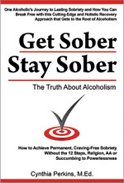Alcoholism Test
Unfortunately, there isn't a standard medical alcoholism test that can be given like a blood test or X-ray that will say "yes you are definitely an alcoholic." Even if an individual has a full evaluation by a competent health care provider, they still don't come away with something in black and white print that is 100% accurate.
Alcoholism is a unique condition where the individual inflicted is the one who must make the ultimate diagnosis and arrive at a place where they seek help for themselves.
A diagnosis for alcoholism is typically made by filling out questionnaires that address how alcohol is affecting the individual psychologically, physically, financially and socially, etc. It's usually a screening process that measures consumption and analyzes behavior and consequences.
Although these types of tests can be helpful to some degree in determining whether one is dealing with alcohol abuse, binging or true addiction, they are vulnerable to a variety of factors that impact reliability and validity.
The biggest influence on whether results are solid is that the person filling out the questionnaire needs to be completely honest. Unfortunately, the alcohol addicted don't tend to be honest about their alcohol consumption or its consequences.
Even those who do attempt to be honest, often don't see themselves accurately, because their thinking is altered by denial and alcohol, or they may be afraid to face the facts about the reality of the situation. Therefore, results of a standard alcoholism test may not be very accurate.
According to NIAAA, there are literally hundreds of alcoholism tests available for clinicians to use in the assessment of alcoholism. Some are very simple and short and others are more detailed and longer. It can be as simple as one question about how much you drink a day or it may consist of as many as 25 questions. Probably the most widely used test in standard treatment centers is the MAST.
The Most Simple Alcoholism Test
The simplest way for you to make a determination whether you have an alcohol problem is this:
If you've arrived at my site, or any alcoholism site, that means that you are apparently wondering and questioning your alcohol consumption or behaviors. If that's the case, the chances are very good that you've got some kind of alcohol problem, otherwise you wouldn't be having these questions. People who aren't alcoholics don't wonder if they are.
Something brought you here. Either a feeling you have deep inside yourself or someone has said something to you about your drinking. This is a sign that something isn't quite right.
Ask yourself whether any of the following apply to you:
- I have a few drinks to feel better, or to decrease my shakiness or nausea.
- It takes more drinking to get the same "buzz".
- It’s practically impossible to stop drinking once I start.
- I spend a lot of time thinking about drinking.
- I've tried to stop drinking (or to drink less), but haven't been able to
- I've cut back on social or professional activities so that I could drink.
- I'm experiencing a variety of consequences on my health, relationships, jobs etc.
If you answer yes to any of these statements, then alcohol is probably an issue in your life.
Does this tell you for sure you're an alcoholic? No, but here's something we know for sure. Alcohol problems are always progressive. If you suspect alcoholism, it is to your benefit to take the steps needed to get you on the right track as soon as possible.
A More Comprehensive Test for Alcoholism
A more advanced and thorough test for alcoholism is the one used at the Health Recovery Center in Minnesota created by Joan Mathews Larson. You can take this test for free in Joan's book, Seven Weeks to Sobriety.
This test, which is actually called a biotype survey, will help you determine your body chemistry. Your body chemistry will determine if you have alcoholism and, if you do, what kind of alcoholism you have and how to address it successfully.
Types of Alcoholism
According to Joan Mathews Larson, from the Health Recovery Center, there are three types of alcoholism.
1. Allergic/ Addicted
In this alcoholism type, the body can't tolerate alcohol and when the individual tries to "learn" to drink they form a pattern of allergy addiction.
2. Omega 6
With this body chemistry, the person is deficient in the Omega 6 EFA's.
3. THIQ
This person is born with an alcohol dehydrogenase liver enzyme that enables them to consume large amounts of alcohol and produces opiate like substances that eventually leads to addiction.
Regardless of what type of alcoholic you may be, you can find a comprehensive approach to recovery in my Clean and Sober for Life Jump-Start Program. I have used the principles in this program to achieve more than 25 years of craving-free and uninterrupted sobriety.


